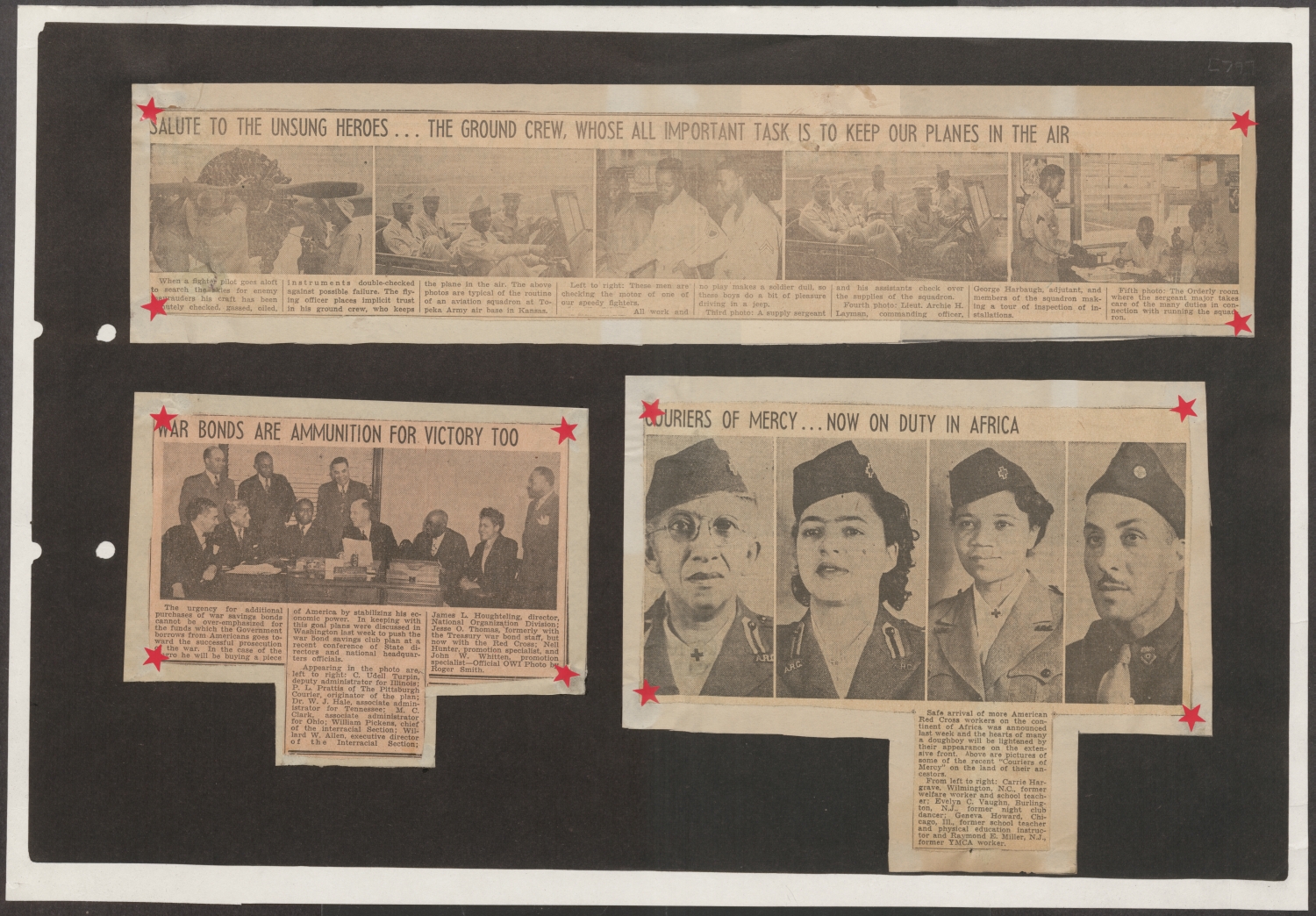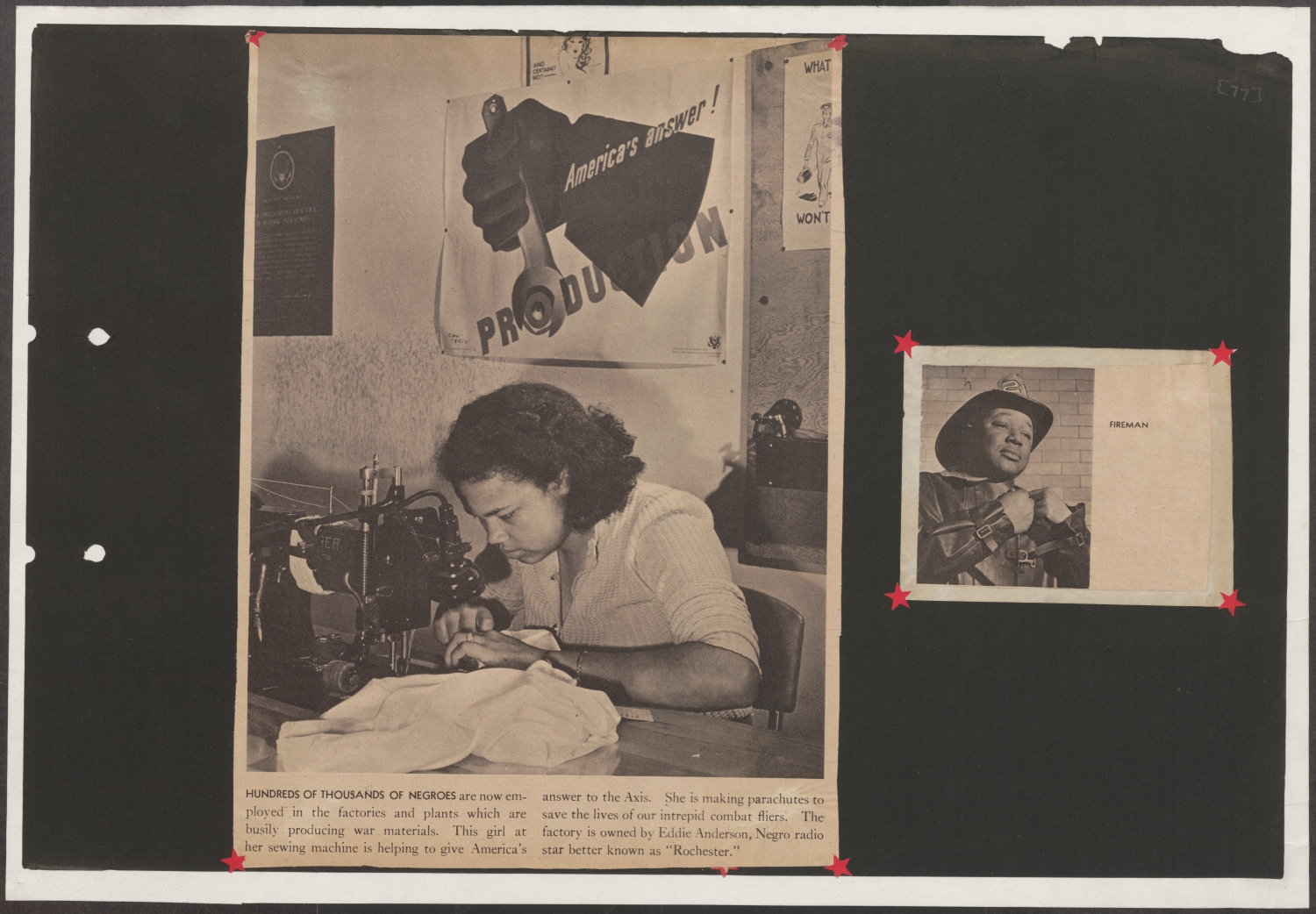African Americans and World War II
Introduction
Around one million African Americans served in the US armed forces during World War II. Millions more were part of national mass mobilization, known as the home front, to support the war effort. As African American troops and civilians engaged in activities that helped the US and its allies fight the enemy on the frontlines all over the world, they also continued to face racial discrimination at home. Segregation, including in the military, was still a legal practice. African American soldiers wearing their uniforms were often insulted and attacked on the streets. Although the US military constantly faced shortages of nurses, African American nurses were not allowed to take care of white American soldiers. Historian Henry Louis Gates, Jr. argued that African Americans were forced to fight “a double war,” one against the enemy on the frontlines and one against racism in their homeland.
Activity Questions
Negro History Scrapbook, pages 71
In this activity, you will explore various African American contributions to the World War II effort.
- Based on the images and short notes attached to them, how did African Americans contribute to the war effort in World War II?
- This is only a small selection of African American contributions to the war effort. What other roles did African Americans play in World War II?
- Notice that these sources are newspaper clippings that someone preserved in a scrapbook. Why do you think the person who created that scrapbook considered those newspaper notes so important that they included them in a scrapbook?
- African American soldiers and civilians proudly served their country at the time when the United States did not grant them civil rights and when racial segregation was legal. Why do you think African Americans volunteered to devote their lives to a country that did not recognize their basic rights as citizens?
Primary Sources
To learn more about the primary sources featured in the activities above, click the following links:
Arkansas Social Studies Standards
US History Since 1890, Grades 9 – 12
- Strand: Era 8: The Great Depression and World War II 1929-1945
- Content Standard 4: Students will evaluate social, economic, and political changes in the United States during World War II.
- Era8.4.USH.3 Analyze the historical significance of battles, events, and people during World War II using multiple sources
- Era8.4.USH.4 Investigate social, economic, and political effects of World War II on the American people from multiple perspectives using a variety of primary and secondary sources (e.g., rationing, internment camps, contributions of women and minorities, defense industry towns, African-American migration, farmer prosperity, G.I. Bill of Rights, employment of women)
- Era8.4.USH.6 Evaluate the credibility and limitations of primary and secondary sources representing multiple perspectives on the social and economic effects of World War II on the American people
African American History, Grades 9 – 12
- Strand: Seeds of Change 1920-1950
- Content Standard 5: Students will analyze the African American experience from 1920-1950
- SC.5.AAH.3 Analyze social, economic, and political actions of African Americans in the early 20th century (e.g., migration, military desegregation, civil rights organizations, social organizations, political organizations, labor unions)
Key Terms
Downloadable Guides and Handouts
We encourage K-12 educators to use History Alive: Virtually! in a way that will best match their classroom needs. The “Exercise” handout includes a complete exercise as featured on this website, the “Primary Sources” handout includes only primary sources used in the exercise, and the “Questions” handout includes analytical questions from the exercise but is editable and can be easily changed to best match students’ needs.
African Americans and World War II – Exercises


